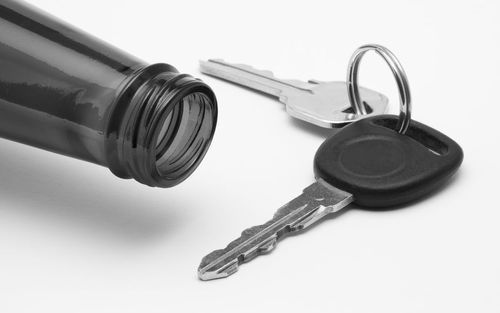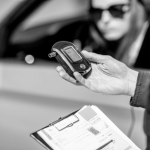You get arrested for DUI in North Dakota. Next thing you know, the police officer reads you an advisory and asks you to submit to a chemical breath test at the jail. Do you take the test, or don’t you? Why would you give them evidence against you if you don’t have to, you might ponder. If you don’t take the test, will you be punished worse than you already are going to be? You ask the officer what you should do, and he tells you that he cannot provide you with advice. So, what now? If these questions pop into your head, attempting to consult with an attorney prior to making a decision on whether to take the test is your best bet. Here is a breakdown of your right to speak with an attorney for the purposes of deciding whether (or not) to submit to a chemical test in North Dakota. If you’re looking for the same information for Minnesota, you can find it here.
Your Right To Speak To An Attorney In North Dakota
In North Dakota, you have a limited statutory right to speak with an attorney prior to deciding whether to submit to a chemical test. If, after being arrested, you are asked to submit to a chemical test, and you respond to the request with a mention of the need for an attorney, to speak with one, to see one, to have one, law enforcement must provide you with a reasonable opportunity to speak with one so long as it does not materially interfere with the administration of the test.
Invoking Your Right
The North Dakota Supreme Court has created a bright-line rule regarding your limited statutory right to speak with an attorney. Law enforcement in North Dakota are not required to tell you about this right, but if you make an unambiguous mention of the desire to consult with counsel prior to deciding whether to take the chemical test, you must be given a reasonable opportunity to do so. However, any mention of an attorney must be for the purposes of whether to submit to the test and not just random commentary unrelated to the testing process. With that, if your request is deemed ambiguous, it is incumbent on law enforcement to clarify your request before denying your statutory right to counsel. So, step one is to make a clear request to speak with an attorney after being asked to submit to the chemical test.
What Is A Reasonable Opportunity?
On the other hand, there is not a bright-line rule for whether your opportunity to speak with an attorney was “reasonable.” Instead, the reasonableness of your opportunity is based on the totality of the circumstances. The North Dakota Supreme Court has only found (at this time) that people have been denied a reasonable opportunity in circumstances where they were not given an opportunity whatsoever. Some important factors that may be considered when determining if your opportunity to speak with an attorney was reasonable are 1) whether the testing process would be interfered with if you continued to attempt to contact an attorney; 2) whether you were actively trying to contact an attorney; and 3) whether any contact with an attorney was a “meaningful” opportunity to consult with counsel. For instance, in North Dakota, law enforcement is required to obtain the chemical test from you within two hours of the time you were driving or in actual physical control of your motor vehicle. Because of this, it may be reasonable in some circumstances, and not in others, for your time to contact an attorney to be cut short, as the two-hour window may be quickly approaching. Whether your opportunity to speak with an attorney was reasonable will not be decided at the jailhouse, however, and if you feel that your opportunity was unreasonable, contacting an attorney once you are released from jail is your best option.
What Is The Remedy If My Statutory Right To Counsel Is Denied?
If you request to speak with an attorney prior to submitting to a chemical test and you are not given a reasonable opportunity to do so, then certain remedies are available depending on your answer to the request. Specifically, if you are not given a reasonable opportunity to speak with counsel and you refused to take the test, then the North Dakota Department of Transportation cannot revoke your driving privileges for refusing to submit to testing. Furthermore, you cannot be criminally liable for refusing a chemical breath test. If you consented to the test, the DOT is still allowed to suspend your license, but the chemical test cannot be used against you in a criminal trial. This is important because it is difficult for the State to convict individuals for DUI if they do not have an evidentiary chemical test to show that you were above the .08 limit, or if they are not able to allege that you refused the testing.
In Conclusion
You have a right to speak with an attorney in North Dakota once you are asked to submit to a post-arrest chemical test. There are no negative consequences if you invoke this right. In fact, speaking with an attorney prior to testing is encouraged. If you are ever in this position, invoking this right may greatly assist you to make the right decision regarding testing.
If you have a criminal issue in North Dakota, including CDL DUI, please do not hesitate to contact our Criminal Defense Team in Fargo at 701-297-2890. This article is only meant to provide general information and does not in any way constitute legal advice.










